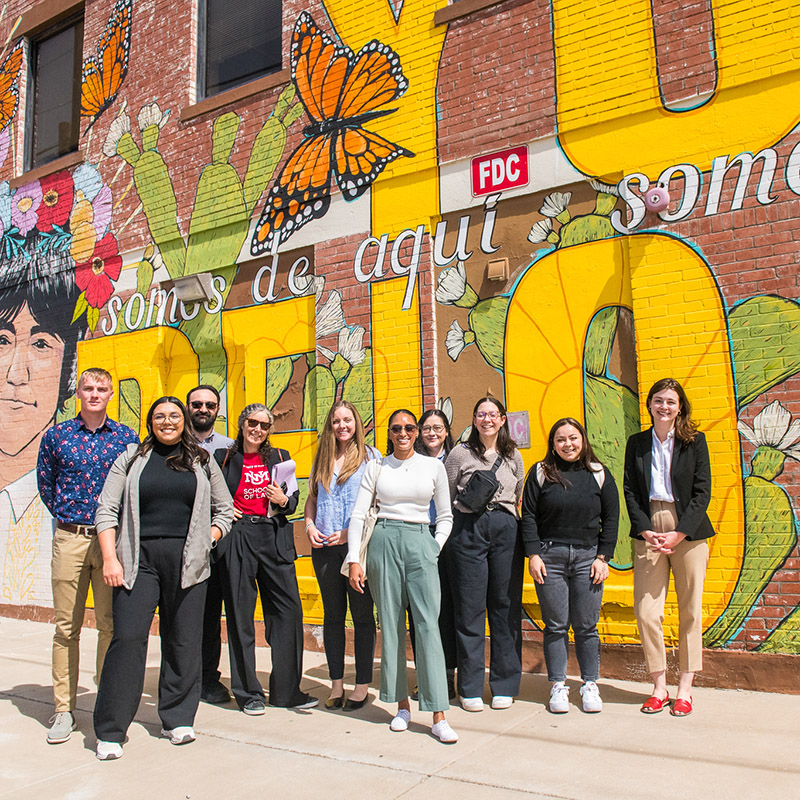UNM Law Students Serve Immigrants at the Border
July 26, 2024

Siix students from the UNM School of Law participated in the inaugural clinic at the Border Service Corps over Spring Break as part of the Border Justice Initiative’s Spring Break Intensive course.
Ari Burks (’22), who is the Border Justice Medical Legal Fellow working with the students, called the Border Service Day a “memorable event that allowed students, non-profits, faculty, and attorneys to work collaboratively and provide much-needed legal assistance for newly arriving immigrants.”
Participating in the event gave many of the students their first experience with the complexities of the immigration process as they worked to provide newly arriving immigrants with information on applying for an Employment Authorization Document (EAD). This assistance can be life-changing for newly arriving immigrants because an EAD, or “work permit,” allows eligible individuals to work legitimately and pay employment taxes in the United States.
Students provided information to the arriving immigrants about the USCIS “CBP One” mobile application, which allows arriving immigrants to receive an I-94 arrival/departure document from the United States government, and a Notice to Appear, so they can be processed through a port of entry. Once in the United States with these documents, these individuals are allowed to apply for an EAD by filling out and filing a form I-765. The students provided essential assistance to these arriving immigrants by helping to organize and translate the often confusing and overwhelming documents required to receive an EAD.
Understanding the complex procedures and forms involved in the immigration process is a significant hurdle for those seeking to enter and work legally in the United States. Horatio Moreno-Campos, an Albuquerque Immigration Attorney and instructor on the trip, said of the immigration process, “Many of the immigrants coming to this country never receive any sort of legal status, not because they have nefarious intentions, but rather because they get bogged down in the mire of confusing paperwork, exorbitant filing fees, and astonishingly long wait times.” The aid provided by the Border Justice Initiative is described by Burks as “a huge relief to those who have a long journey ahead of them in the United States seeking legal status through permanent asylum.”
By using the combined knowledge, expertise, and willpower of everyone involved, the law students and instructors were able to make a small but meaningful impact on newly arriving immigrants and provide a beacon of hope to those who had just finished one long journey and are embarking on another.
